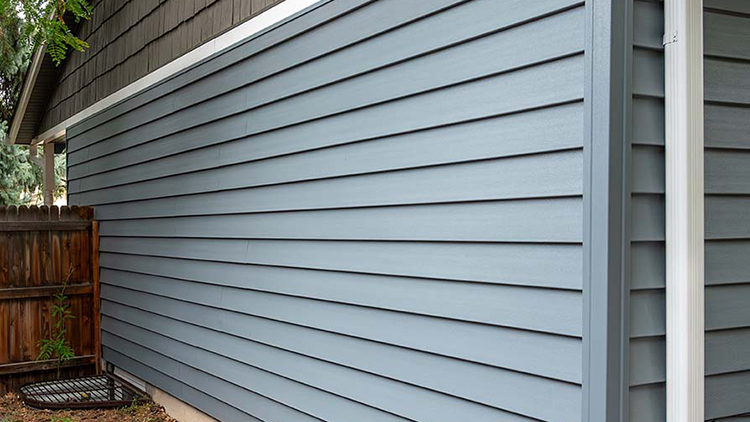If you’re considering a home renovation, you might be wondering if replacing wood siding with vinyl might increase your property’s value. While the benefits of vinyl siding include enhanced durability and reduced maintenance, is it really a lucrative decision for those looking to increase the value of their home? Let’s take a closer look.
Differences Between Wood and Vinyl Siding
Firstly, it’s important to point out that the choice between wood and vinyl siding is not just about aesthetics; it also involves considerations regarding durability, maintenance, and impact on home value. Here are some key differences between these two types of siding materials:
Characteristics of Wood Siding
Wood siding has long been valued for its classic, timeless appearance, and offers a natural look that can be tailored through staining or painting, depending on your particular architectural style. However, wood siding does require regular maintenance, including painting or staining every few years to prevent damage from weather and pests. In addition to this, wood siding is often more expensive than vinyl, both when it comes to the initial installation, and the cost of ongoing maintenance.
Advantages of Vinyl Siding
Vinyl siding has become increasingly popular due to its low maintenance requirements and durability, and doesn't require painting or staining in the way that wood does. Vinyl can also withstand elements without rotting, warping, or fading, making it ideal for those who live in areas of the US with unpredictable weather. Vinyl siding Denver also comes in an array of colors and styles, some of which can even mimic the look of wood. Ultimately, vinyl is generally more cost-effective than wood, both in terms of initial investment and long-term upkeep.
Differences in Durability and Maintenance
When comparing durability and maintenance, vinyl siding does have an advantage; it tends to resist moisture and is also not susceptible to insect damage in the way that wood siding is. Plus, unlike wood, vinyl doesn't need regular refinishing and can last for decades with minimal upkeep. Wood, while durable if properly maintained, can still be prone to rot, warping, and insect damage, making it the least durable of the two over the long term.
How Can Siding Influencing Home Value
When it comes to the question of increasing your property’s value, everything depends on a number of factors, including the home's location, the local real estate market, and the condition of the existing siding. In neighborhoods where wood siding is predominant and valued for its aesthetic, replacing it with vinyl might not significantly increase home value. Conversely, in areas where low maintenance and durability are prioritized, vinyl siding may be more appealing to potential buyers.
The Impact of Siding Replacement
However, when it comes to replacing old siding - especially if the existing siding is aged or in disrepair - this can significantly enhance a home's curb appeal, and by extension, increase the overall value of your property. Not only does replacement siding improve the appearance of your home (in turn attracting more buyers and potentially increasing the home’s value) but there’s also a style dimension to take into account. Vinyl siding is available in a wide range of styles and colors that can give your home a fresh, updated look, while also signaling to potential buyers that the property requires less or minimal maintenance.
Long-Term Benefits
Beyond the immediate aesthetic improvement and potential increase in property value, switching from wood to vinyl siding offers several long-term advantages:
Reduced Maintenance Costs
Vinyl siding eliminates the need for frequent repainting or staining, which is a significant consideration with wood siding. This reduction in upkeep can lead to considerable savings over time, either for you or for a potential buyer.
Energy Efficiency
Modern vinyl siding options often include added insulation, which can improve a home’s energy efficiency: this not only reduces your own energy bills, but also can be used as a key selling point for environmentally conscious buyers.
Warranty and Value
Many vinyl siding products come with extended or lifetime warranties, which can offer priceless peace of mind to potential buyers.
Considerations Before Replacement
While vinyl can make for a promising and lucrative replacement for wood siding, you’ll still want to take some considerations into account before moving forward with your renovation. Before proceeding with siding replacement, we’d recommend considering the following factors:
- Neighborhood Trends: Aligning with the aesthetic norms of the neighborhood can be important; in some historic or upscale neighborhoods, wood siding might be more valued.
- Quality of Materials: Choosing high-quality vinyl siding that offers a good balance between cost and appearance is crucial - especially given that durability is one of its key selling points.
- Professional Installation: Proper installation is key to ensuring the longevity and performance of vinyl siding, so hiring experienced professionals is highly recommended for the best visual - and functional - outcome.
Key Takeaways
Ultimately, replacing wood siding with vinyl can potentially increase your home's value, particularly if the existing siding is in poor condition or if your home is located in an area where vinyl siding is favored. That said, the decision should be based on a careful evaluation of factors such as cost, maintenance, neighborhood standards, and your own preferences - this is especially true if you’re not planning on selling your home in the immediate future.
